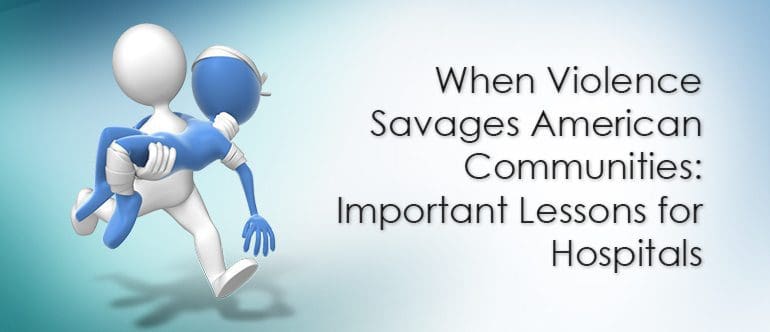Call us toll-free: 800-878-7828 — Monday - Friday — 8AM - 5PM EST

By Marty Stempniak for (H&HN) Hospitals & Health Networks
Plan and practice, experts say, but allow room for innovation when necessary
For Elisabeth Brown, R.N., June 11 began like any other busy Saturday night in an urban emergency department. But in the wee hours of Sunday morning, she got an alarming text from her husband. At least 20 individuals had been shot at a nearby nightclub and, he warned, Orlando Regional Medical Center was about to get very busy.
Three blocks away, 29-year-old security guard Omar Mateen had opened fire at Pulse, a dance club with a primarily gay clientele. It wasn’t long before victims started trickling into Central Florida’s only Level I trauma center.
“Our first patient came in and then we got to work. That’s what we do in the emergency department: We get to work,” Brown told attendees at the Institute for Healthcare Improvement annual conference in Orlando in December, six months after the incident. “And then another patient came in. And then another patient came in. And another patient came in, and they just kept coming, and they had wounds like I had never seen before, and I started to get really scared, and I looked in the other nurses’ eyes and they were scared, too.”
In what turned out to be worst mass shooting in U.S. history, 50 people died, including the gunman. All told, 44 victims were rushed to ORMC. Nine died, but clinicians at the hospital performed more than 50 surgeries on 35 patients. Everyone who made it to the operating room survived.
Amid the turmoil, ORMC’s leaders were calm and collected. Just three months earlier, Orlando Health had conducted a community wide mass casualty drill to prepare for such a situation. Without that practice, Mark Jones, senior vice president of the system and president of ORMC, believes many more people could have died.
“There is no question that the work that was done that day helped to save lives,” he told the rapt audience at the IHI forum. “Hospitals, we would really, really urge you to practice incident command. Drill often. Do the tabletop exercises as often as you can.”
And, Jones emphasized, don’t hold those drills only when it’s convenient. “You always think that, you know what, the hospital is too busy,” he said. “We would urge you to drill when you’re busy. Drill at night. Practice on the weekends. Because what comes out of that are lessons and learnings and gaps that are identified that allow you to address them and prepare.”
